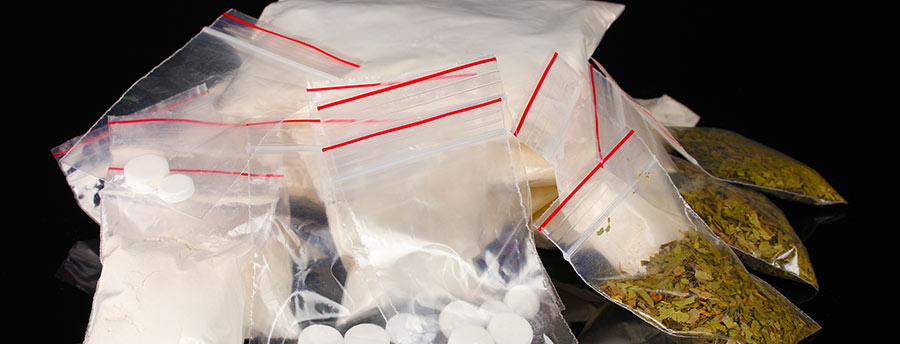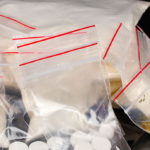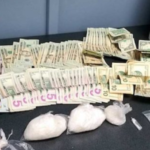A controlled substance’s schedule determines the potential maximum sentence.
Criminal laws prohibiting the possession, sale, use, and trafficking of controlled substances have various levels of potential prison sentences based on each particular drug’s classification, called “schedule.”

Definition of Controlled Substance Schedules and Relationship to Criminal Charges
Drugs and other substances that are considered controlled substances under the Controlled Substances Act (CSA) are divided into five schedules. Criminal laws related to drugs are most severe for Schedule I Controlled Substances and least severe for Schedule 5. A person facing criminal drug charges will need to understand the correlation between penalties and controlled substance schedules. The following classifications are based on federal law and, for the most part, are followed by Michigan for state-level felony and misdemeanor offenses.
- Schedule I Controlled Substances have no currently accepted medical use in the United States, a lack of accepted safety for use under medical supervision, and a high potential for abuse.
- Schedule II Controlled Substances have a high potential for abuse, leading to severe psychological or physical dependence.
- Schedule III Controlled Substances have a potential for abuse less than substances in Schedules I or II, and abuse may lead to moderate or low physical dependence or high psychological dependence.
- Schedule IV Controlled Substances have a low potential for abuse relative to substances in Schedule III.
- Schedule V Controlled Substances have a low potential for abuse relative to substances listed in Schedule IV and consist primarily of preparations containing limited quantities of certain narcotics.
Examples of Controlled Substances and the Schedules
Schedule 1 Controlled Substances
- MDMA
- Ecstasy
- MDA
- China White
- Cathinone (Khat)
- GHB
- Heroin
- LSD (Acid, Blotter Acid, Window Pane)
- Marijuana/Cannabis (legal in Michigan)
- Mescaline (peyote)
- Morphine
- Psilocybin/Psilocyn (a constituent of “magic mushrooms”)
Schedule 2 Controlled Substances
- Dilaudid (hydromorphone, Dust, Juice, Smack, D, Footballs)
- Methadone (Dolophine, Fizzies, Amidone, Chocolate Chip Cookies)
- Demerol (meperidine)
- OxyContin
- Cocaine (Coke, Snow, Crack, Rock)
- Percocet
- Oxycodone
- Endocet
- Roxicodone (Roxy)
- Roxicet
- Oxymorphone
- Fentanyl
- Morphine
- Opium
- Codeine
- Hydrocodone
- Amphetamine
- Dexedrine
- Adderall
- Methamphetamine (Meth, Speed, Crystal, Glass, Ice, Crank, Yaba)
- Desoxyn
- Ritalin
- Amobarbital
- Glutethimide
- Pentobarbital
- Coca Leaves
- Methylin
- Opium
- Concerta
Schedule 3 Controlled Substances
- Tylenol with Codeine
- Buprenorphine (Suboxone)
- Benzphetamine (Didrex)
- Phendimetrazine
- Ketamine (Special K, “K”, Kit Kat, Cat Valium)
- Anabolic steroids (such as Depo-Testosterone, Arnolds, Gym Candy, Pumpers, Roids, Stackers, Weight Trainers, Gear, and Juice)
Schedule 4 Controlled Substances
- Alprazolam (Xanax)
- Benzodiazepine (Benzos, Downers, Nerve Pills, Tranks)
- Carisoprodol (Soma)
- Clonazepam (Klonopin or Clonopin)
- Clorazepate (Tranxene)
- Diazepam (Valium)
- Lorazepam (Ativan)
- Midazolam (Versed)
- Temazepam (Restoril)
- Triazolam (Halcion)
- Tramadol
Schedule 5 Controlled Substances
- Cough preparations with low levels of codeine
- Robitussin AC
- Phenergan with Codeine
- Ezogabine
- Lyrica

Synthetic Drugs (Analog or Analogues)
Synthetic Drugs are also referred to as New Psychoactive Substances. These drugs often chemically resemble natural-occurring products, but they have differences in their chemical structure. Synthetic Drugs may have names like Green Giant, Joker, Spice, K2, N-bomb, bath salts, Molly, Crystal Meth, Smiles, and Flakka. Some may be sold in commercial packaging at gas stations and convenience stores or sold in street deals like other drugs. Individual products can contain a vast range of different chemical formulations and potency. Consuming these Synthetic Drugs can cause severe symptoms, including seizures, psychotic episodes, suicidal thoughts, and even death.
The federal government works quickly to outlaw synthetic drugs and classify their chemical compounds as scheduled controlled substances. As a result, many synthetic drugs sold in stores are controlled under federal law, making manufacturing or distributing them a prosecutable offense, even if they are sold as over-the-counter items.
What law enforcement agencies investigate offenses related to controlled substances?
- Department of Justice (DOJ)
- Drug Enforcement Administration (DEA)
- Federal Bureau of Investigation (FBI)
- National Criminal Justice Reference Service
- Department of Health & Human Services (HHS)
- Food & Drug Administration (FDA)
- National Institute on Drug Abuse (NIDA)
- Substance Abuse & Mental Health Service Administration (SAMHSA)
- Center for Substance Abuse Treatment (CSAT)
- Michigan State Police
- Michigan Attorney General
- Michigan Department of Health and Human Services
- Various local police agencies, prosecutors, and city attorneys

Federal Drug Laws Based on Controlled Substance Schedules
Possession, use, or distribution of illicit drugs is prohibited by federal law. Strict penalties are provided for drug convictions, including mandatory prison terms for many offenses. Penalties increase significantly where the use of illicit drugs results in death or serious bodily injury.
- Possession of a Controlled Substance – Up to 1 year in prison
- Possession of a Controlled Substance – Second Offense – Not less than 15 days but not more than 2 years in prison
- Possession of a Controlled Subsequent – 3d or Subsequent Offense – Not less than 90 days but not more than 3 years in prison
- Possession of Flunitrazepam (Rohypnol, “roofies” or “roaches”) – Up to 3 years in prison.
- Sale, Import, Export, or Shipping of Drug Paraphernalia – Up to 3 years in prison
- Drug Trafficking (Sale, Distribution, Intent to Sell or Distribute, Conspiracy) – Penalties for federal drug trafficking convictions vary according to the quantity of the controlled substances involved in the transaction. Penalties range from 1 year in prison to life in prison. Depending on the quantity and type of the drug, mandatory minimums might be applicable. Many federal sale and delivery offenses carry 5, 10, 20, and 40-year maximum sentences.
In addition to jail, prison, and probation, a federal controlled substance conviction can result in the denial of federal benefits, including but not limited to school loans, grants, contracts, and licenses. Federal drug trafficking convictions may result in denial of federal benefits for up to five (5) years for a first conviction, 10 years for a second conviction, and permanent denial of federal benefits for a third or subsequent conviction. Federal drug convictions for possession may result in denial of federal benefits for up to 1 year for a first conviction and up to 5 years for subsequent convictions.
Michigan Drug Offenses and Penalties Based on Controlled Substance Schedules
Possession of Schedule I or Schedule II substances carries similar penalties in Michigan. This is a summary of various weight ranges and their corresponding maximum penalties for possession. The penalties listed below are for maximum prison terms; however, all offenses carry hefty fines and up to 5 years of probation.
- Less than 25 grams – four years in prison
- 25-49 grams – four years in prison
- 50-449 grams – twenty years in prison
- 450-999 grams – thirty years in prison
- 1,000+ grams – Life in prison
Other Michigan Offenses Include:
- Prescription Drug Possession – Up to 4 years in prison (for most offenses)
- Distribution of Prescription Drugs – Up to 40 years in prison (for most offenses)
- Possession of Ecstasy or Methamphetamine – Up to 10 years in prison
- Sale, Delivery, or Distribution of Ecstasy or Methamphetamine – Up to 20 years in prison
- Sale, Delivery, or Distribution of a Schedule 4 Controlled Substance – Up to four years in prison Sale, Delivery, or
- Distribution of Schedule 5 Controlled Substances – Up to 2 years in prison
Controlled Substance Offense Enhancements
If an offense involved certain circumstances, the potential penalties could substantially increase. For example, delivery of drugs to a minor, delivery or possession on school property, a library, a public park, or a second or subsequent offense will increase the maximum possible sentence.

Defense Lawyers for State and Federal Controlled Substance Charges
Few lawyers in Michigan have the depth of knowledge, experience, and track record of success as the Defense Team with LEWIS & DICKSTEIN, P.L.L.C. Using a unique team approach, our seasoned defense veterans work together and collaborate on all cases to achieve the best possible outcomes for all clients. We would value the opportunity to talk with you about your case, answer your questions regarding controlled substance schedules and criminal charges, and share how our team can help you with charges in all Michigan circuit and district courts and all federal United States District Courts located in Michigan. Call us for a free consultation today.
Call us today at (248) 263-6800 for a free consultation or complete an online Request for Assistance Form. We will contact you promptly and find a way to help you.












